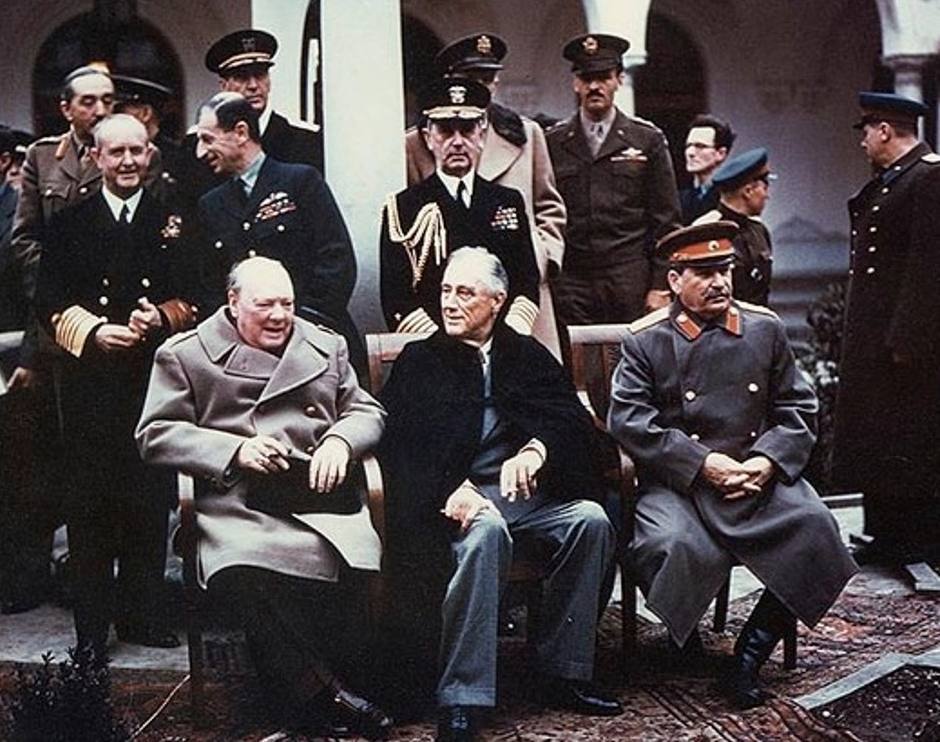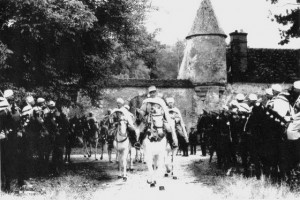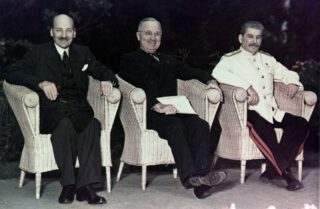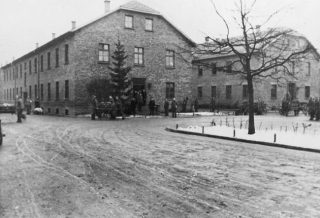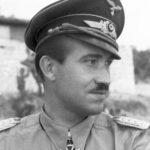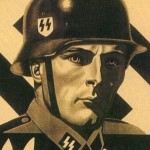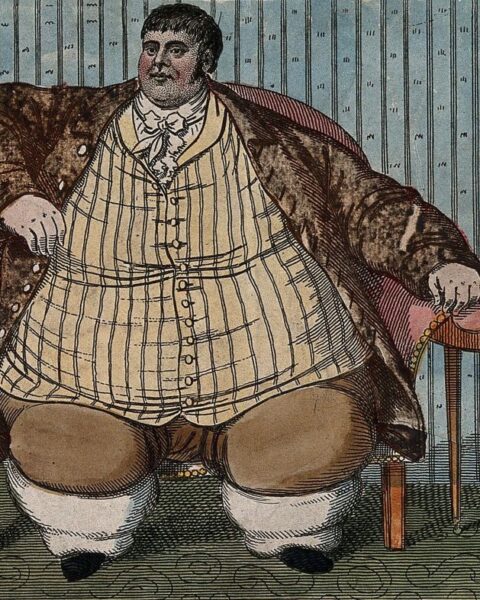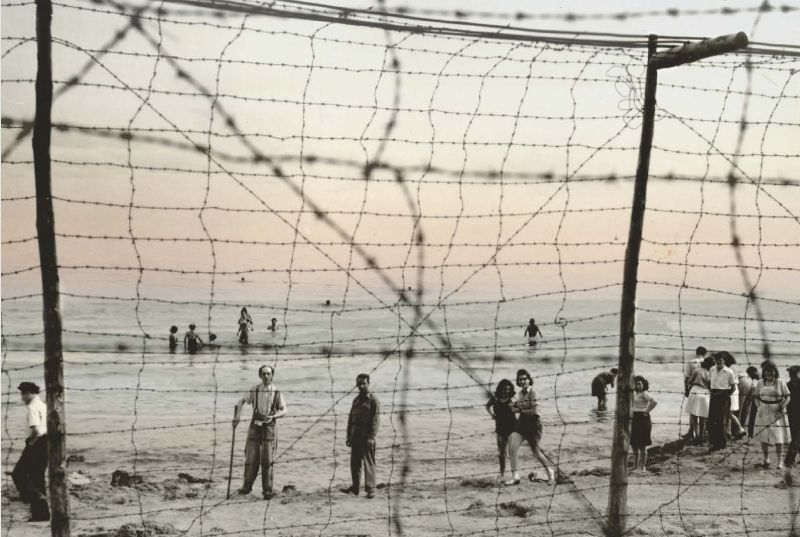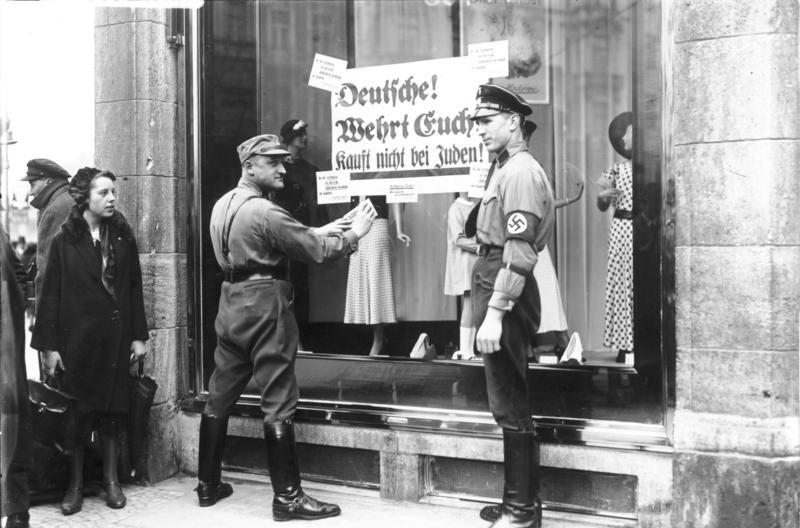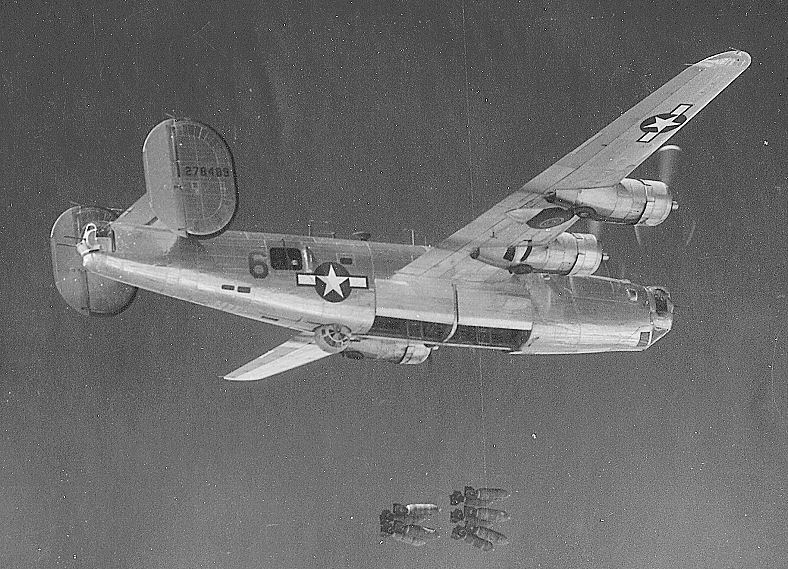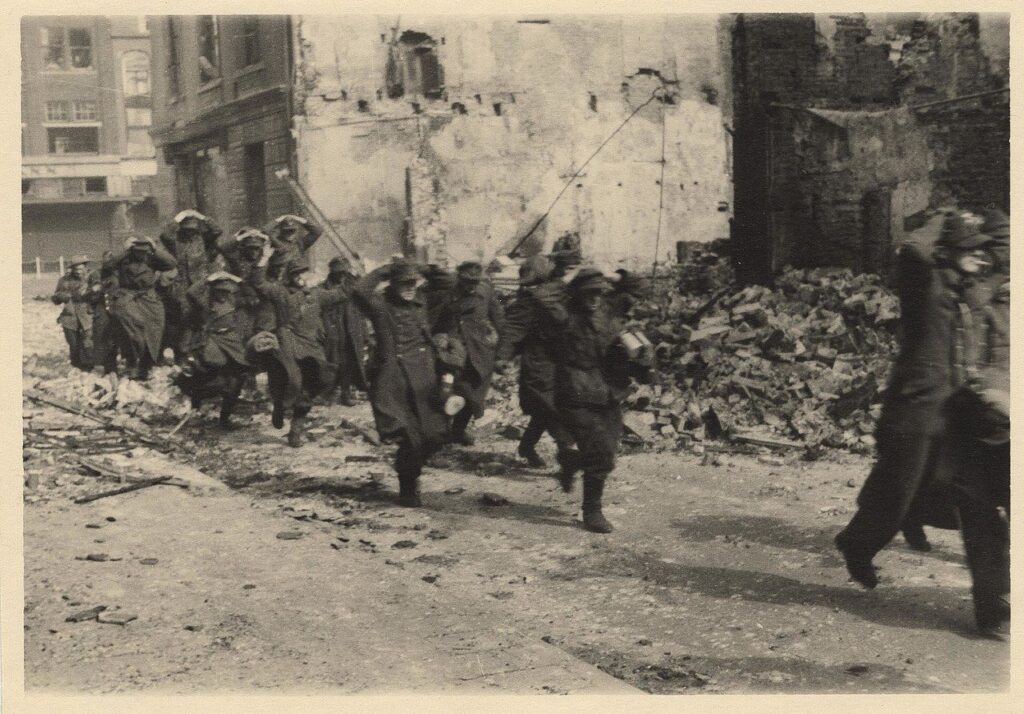Januari 1945: het einde van de Tweede Wereldoorlog naderde met rasse schreden. De uitkomst leek ook bepaald: nazi-Duitsland zou definitief het onderspit gaan delven, terwijl de ‘Grote Drie’, de Verenigde Staten, de Sovjet-Unie en Groot-Brittannië, als overwinnaars uit de bus zouden komen.

Hartelijkheid in Teheran
De conferentie van Jalta was niet de eerste gelegenheid waarop de drie leiders elkaar spraken. Ruim anderhalf jaar eerder, november 1943, sprak het drietal elkaar al in Teheran. De twee democratische leiders en de communistische Sovjetleider stapten over hun ideologische verschillen heen om te bespreken hoe nazi-Duitsland tot onvoorwaardelijke capitulatie kon worden gedwongen. Hoewel de Duitsers toen al nederlagen hadden geleden bij Stalingrad en El Alamein, was de oorlog namelijk nog volop bezig. En de Duitsers waren vooralsnog verre van definitief verslagen.
In Teheran bespraken Churchill, Roosevelt en Stalin daarom de mogelijkheden om een geallieerde landing in Noordwest-Europa te laten plaatsvinden. Op die manier hoopten de leiders een beslissend tweede front te openen. Hitler zou de militaire druk niet meer aankunnen, de Duitse oorlogsindustrie zou de strijd niet kunnen bijbenen en het Duitse, militaire moraal zou tot vriespeil dalen. Ook gaf Stalin in Teheran aan die andere agressor, Japan, aan te willen pakken.
Over de naoorlogse situatie werd toen maar weinig gedebatteerd. Ja, om Stalins hulp in het vervolg van de oorlog te behouden, deden de westerse mogendheden enkele toezeggingen: de Sovjet-Unie mocht de Baltische staten annexeren en de naoorlogse grenzen voor Polen werden langs de Oder-Neissegrens en de Curzonlijn vastgesteld. Ook besprak het drietal verschillende toekomstschetsen voor het naoorlogse Duitsland. Maar over het algemeen werd er weinig concreets afgesproken. Het optimistische drietal sprak voornamelijk over de nieuwe strategische, militaire plannen, die het tij voor de geallieerden in de oorlog moesten doen keren.
Spanning in de lucht
De ontspannen, haast vriendelijke setting van de conferentie in Teheran was bijzonder te noemen – het was in ieder geval niet exemplarisch voor de twintigste eeuw. De eerste helft van die eeuw wordt namelijk gekenmerkt door een vrijwel constante confrontatie tussen ideologieën.
In Rusland vond in 1905 de Winterrevolutie plaats, waarbij socialisten en conservatieven elkaar in de haren vlogen; de Eerste Wereldoorlog joeg over het Europese continent en maakte miljoenen slachtoffers; de ‘witte’ tsaar werd ten tijde van de Russische Revolutie verjaagd door de ‘rode’ bolsjewieken; Finland, Estland, Letland, Litouwen en Polen werden geboren als onafhankelijke staten; in de VS leidde de ‘red scare’ tot het intimideren en molesteren van communisten, anarchisten en andere (linkse) stakingsleiders; de Grote Depressie maakte in het westen de mensen het leven moeilijk; de wereldmachten hielden elkaar tegelijkertijd bezig met een heuse wapenwedloop; en angst en onzekerheid heersten: wie zou welke kant kiezen in de dreigende, volgende oorlog?
Kortom, het merendeel van de eerste helft van de twintigste eeuw bestond uit angst voor elkaar, voor de ‘andere’ ideologie, uit desoriëntatie, wantrouwen en spanning.
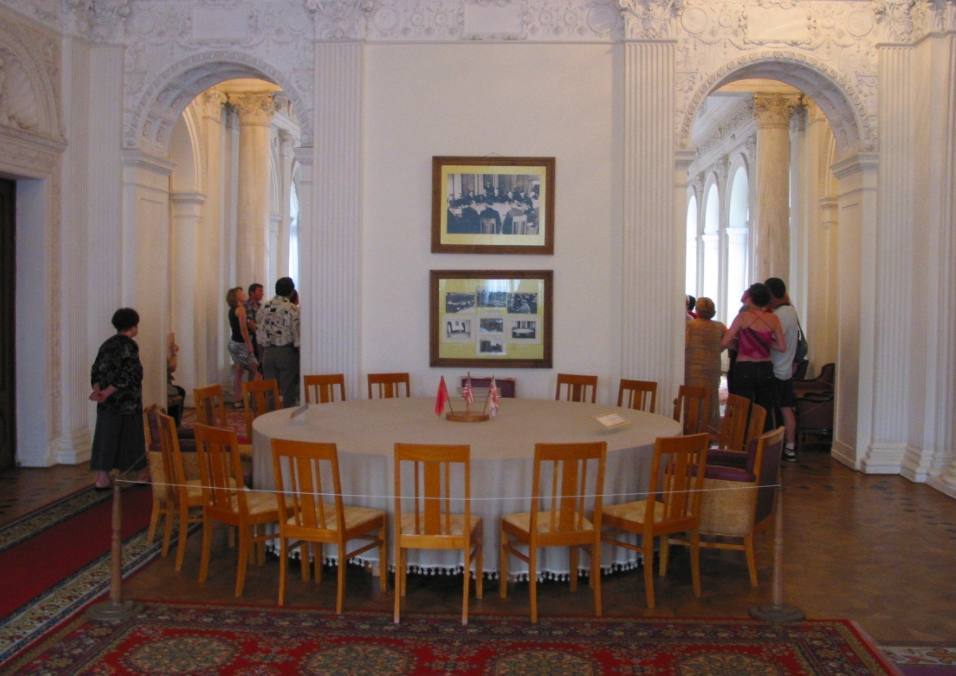
De ‘Grote Drie’ in Jalta
Terug naar Jalta. Adolf Hitler en zijn nazi-Duitsland stevenden onvermijdelijk af op de nederlaag in de Tweede Wereldoorlog. Voor Churchill, Roosevelt en Stalin was daarom de tijd rijp om te bespreken hoe het na-oorlogse Europa eruit moest komen te zien. Na alle onrust en angst was het tijd voor een overzichtelijke en bovenal stabiele toekomst. De inmiddels zieke Roosevelt nam het initiatief om de ‘Grote Drie’ bijeen te roepen in Jalta, een stad annex badplaats op de Krim aan de Zwarte Zee. De keus voor die locatie was op stevig aandringen van Stalin, die namelijk weigerde om zijn grondgebied te verlaten.
Van 2 tot 10 februari 1945 kwam het drietal, ondersteund door wel zeshonderd militaire adviseurs, experts en technici, bijeen in Jalta om te onderzoeken hoe dat stabiele, vredevolle Europa ingericht moest worden. De omvangrijke entourage maakte indruk en benadrukte daardoor het belang van de conferentie. Dat gaf de bijeenkomst behoorlijk wat aanzien, en stuwde de verwachtingen daardoor omhoog.
Waar in Teheran nog een hartelijke, optimistische sfeer heerste, was in Jalta de spanning juist weer voelbaar. De wereldleiders wisten dat aan de periode van militaire samenwerking tegen een gemeenschappelijke vijand bijna een einde zou komen. De wereld moest opnieuw verdeeld worden, de macht lag voor het grijpen, het onderlinge vertrouwen was zoek, en het eigenbelang kon versterkt worden. Harde afspraken over afbakeningen en invloedssferen waren nodig – fel onderhandelen was logisch.
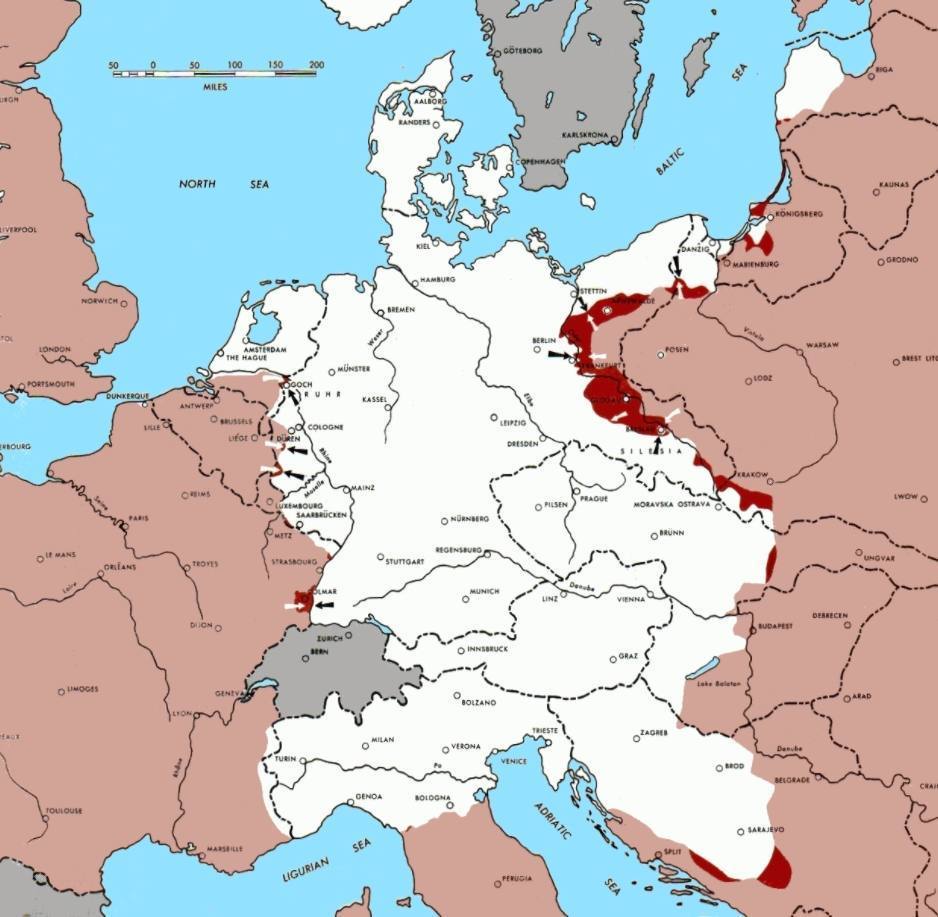
Plannen voor Duitsland
Natuurlijk was tijdens de conferentie van Jalta de toekomst van Duitsland een heet hangijzer. Zowel Roosevelt, Churchill als Stalin hadden hun eigen plannen voor het land bedacht. Roosevelt wilde het land opsplitsen in vijf Duitse staten en twee internationale zones in de industriële regio’s. Dat laatste was belangrijk, vond Roosevelt, want zo kon de internationale gemeenschap erop toezien dat Duitsland niet meer zou uitgroeien tot een ongeleid, industrieel projectiel dat de wereldvrede zou bedreigen. De Amerikaanse minister van Financiën, Henry Morgenthau, Jr., ging nog een stapje verder: hij wilde van Duitsland een uitsluitend agrarische staat te maken, waarbij alle industrie ontmanteld werd.
Churchill onderstreepte het belang van de ontmanteling van de Duitse industrie. Ook leek het hem, net als Roosevelt, belangrijk om Duitsland te splitsen in regio’s – dat zou toekomstige agressie voorkomen. Een versplintering van Duitsland zou het, volgens Churchill, bovendien mogelijk maken om een (in ieder geval economisch) Centraal-Europees blok te creëren. Stukjes van Duitsland konden samengevoegd worden met Hongarije. Dat zou er voor zorgen dat Centraal-Europa weer iets van zijn samenhang – en daarmee politiek-militaire weerbaarheid – zou terugvinden.
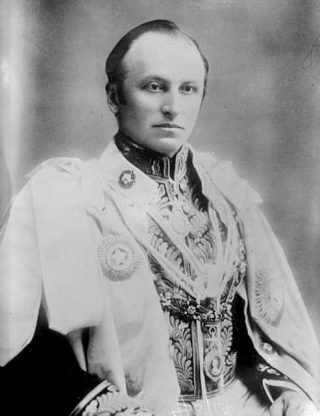
Verenigde Naties en herstelbetalingen
Naast de kwestie-Duitsland waren er nog meer discussies te beslechten. Het Britse Rijk, vóór de Tweede Wereldoorlog een grootse en trotse koloniebezitter, wilde haar mondiale invloed behouden – en deze in ieder geval niet verliezen aan de Sovjet-Unie. Dat land had, op haar beurt, onnoemelijk zwaar te lijden gehad onder het oorlogsgeweld. En, niet verrassend, eiste de Sovjet-Unie herstelbetalingen voor de wederopbouw van het verwoeste land.
Om belangrijke steden als Leningrad (het huidige Sint-Petersburg), Charkov, Rostov en Moskou aan eventueel toekomstig oorlogsgeweld te onttrekken, eiste Stalin bovendien een veiligheidsbuffer in oostelijk Europa. De Verenigde Staten waren eveneens uit op blijvende invloed en controle – dit om de precaire vrede te handhaven. Daarom spanden de VS zich in om een vredesorgaan (de toekomstige Verenigde Naties) op te richten. Ook pleitten de VS ervoor om Duitsland militair te elimineren, maar niet om het land ook nog eens economisch kapot te maken. Herstelbetalingen moesten daarom, wat Roosevelt betreft, beperkt blijven (dat had men wel geleerd van de Vrede van Versailles) en Duitsland moest niet helemaal, puur vanuit wraakzucht, opgeknipt worden.
Conferentie van Jalta: de onderhandelingen beginnen
Genoeg thema’s om over te onderhandelen dus. De onderhandelingen verliepen, zoals eerder aangegeven, stroef en in een weinig harmonieuze sfeer. Dat kwam goeddeels door de actuele militaire situatie. Het Rode Leger had het merendeel van oostelijk Europa al bevrijd en onder controle gebracht. Stalin bonkte al op de poorten van Hitlers Berlijn, terwijl grote delen van West-Europa nog bevrijd moesten worden. De onderhandelingsruimte voor Churchill en Roosevelt was daardoor beperkt: keiharde eisen stellen, terwijl er nog heel wat militaire boontjes te doppen waren – dat liet zich maar moeilijk rijmen.
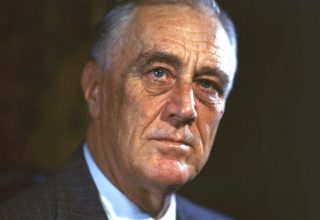
Wel werd afgesproken dat Duitsland, met uitzondering van de regio’s die aan Polen werden toebedeeld, in drie geallieerde bezettingszones zou worden opgedeeld. Churchill maakte zich er later hard voor dat ook Frankrijk mee deed in de Geallieerde Bestuursraad: dat verminderde de invloed van de Sovjet-Unie immers van een derde naar een kwart.
Als geheel moest Duitsland wel verenigd blijven, vonden de geallieerden. Een verenigd Duitsland zou namelijk economisch sterker zijn, en kon zo ook beter bijdragen aan het economisch herstel van Europa. Denazificatie en normalisatie in het internationale speelveld hadden daarbij prioriteit: dat zou ervoor zorgen dat Duitsland niet wéér de wapenen zou opnemen.
Een té harde afstraffing van naoorlogs Duitsland zou bovendien alleen maar nieuwe onvrede in de hand werken. Daarom besloten de ‘Grote Drie’ om nazi-Duitsland geen herstelbetalingen op te leggen. Wel eiste het drietal het royale bedrag van omgerekend ruim tweeëntwintig miljard dollar – niet als herstelbetaling, maar als schadeloosstelling. Stalin claimde daar overigens, tot grote frustratie van Roosevelt en Churchill, de helft van.
Invloedssferen
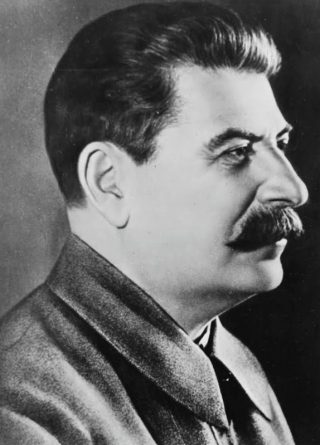
Dat Stalin zó sterk de hand mocht hebben in zijn Oost-Europese ‘invloedssferen’, kwam voornamelijk door de militaire situatie. Roosevelt – en Churchill na hevig tegensputteren ook – moesten wel tegemoetkomen aan Stalins ambities, want ze hadden de Sovjet-Unie hard nodig in de strijd tegen Japan. De atoombom was immers nog in de maak, en het eventuele besluit om die in te zetten, was nog niet gevallen.
Bij de verovering van Japan met conventionele wapens had Roosevelt de inzet van miljoenen Sovjetsoldaten dus hard nodig – en Stalin was best bereid om militair mee te doen. Ook was Stalin al tegemoetgekomen aan de wens van Roosevelt om de Verenigde Naties op te richten. Voor wat, hoort wat: Stalin werd de vrije hand in Oost-Europa – weliswaar met enige tegenzin – gegund.
De afspraken van de Conferentie van Jalta
De kwestie Polen was dus afgehandeld en er werd een datum geprikt voor een oprichtingsvergadering van de Verenigde Naties. De Sovjet-Unie zou zich, in ruil voor dat laatste, mengen in de oorlog met Japan. Ook werd afgesproken dat de ‘Grote Drie’ Europa economisch en politiek gezien zouden helpen na de naziperiode. En dat het bevrijde Europa zich vrij en democratisch kon ontwikkelen.
Duitsland kreeg geen herstelbetalingen opgelegd, maar moest de geallieerden wel schadeloosstellen. Natuurlijk moest Duitsland ook de wapenproductie minimaliseren en helpen bij de heropbouw van Europa. Dat Duitsland verdeeld zou worden en dat Frankrijk daar ook een rol in zou spelen, werd ook besloten, maar voor de precieze indeling zou nog nader overleg plaatsvinden.
Ook maakten de ‘Grote Drie’ de agenda op voor komende bijeenkomsten. Zo werd in Jalta afgesproken dat er nog nader overleg zou plaatsvinden over de berechting van oorlogsmisdadigers, over het hebben van toekomstige ontmoetingen en over de nazi-bondgenoten, zoals Italië en Bulgarije. Concrete afspraken werden nog niet gemaakt.
Op naar Potsdam
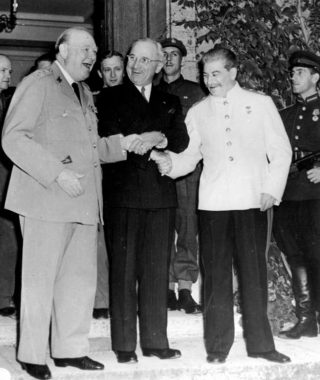
De balans opgemaakt
De Conferentie van Jalta heeft al decennialang een dubieuze status in de geschiedenis van de tweede helft van de twintigste eeuw. Samen met Potsdam was Jalta beslissend in de naoorlogse, post-Hitleriaanse situatie in Europa. Tijdens de Tweede Wereldoorlog – en ook in de decennia daarvoor – was Europa al ideologisch verdeeld geraakt. Jalta was, ingegeven door het gevoel de gemeenschappelijke vijand bijna op de knieën te hebben gedwongen, de ultieme poging om die scheidslijnen te overwinnen en om te komen tot gemeenschappelijke principes voor het naoorlogse tijdperk.
Op papier lukte dat aardig. De ‘Grote Drie’ gingen akkoord met het oprichten van de Verenigde Naties en met ‘zelfbestuur’, ‘democratische instellingen naar eigen keuze’ en ‘vrije verkiezingen’ voor de Europese landen. En met z’n drieën (of vieren: inclusief Frankrijk) wilden ze ervoor zorgen dat Duitsland weer op de rails werd gezet, in plaats van nog verder zou ontsporen.
Maar de praktijk pakte, zo bleek al tijdens de conferentie in Potsdam, anders uit. Stalin vulde de afspraken van Jalta al snel anders in en Roosevelt en Churchill bleken niet in staat om de gemaakte Jalta-toezeggingen bij Stalin af te dwingen.
De bipolaire, ideologische scheidslijnen, zoals al gevormd in de jaren vóór de Tweede Wereldoorlog, bleven daardoor niet alleen bestaan, maar werden extra gemarkeerd. De kou bleef in de lucht, het IJzeren Gordijn werd opgericht, en Jalta ging de geschiedenisboeken in als een moedige, maar helaas mislukte poging om de tegenstellingen in de wereld te overbruggen.
Boek: The Yalta Conference
Oude nieuwsvideo over de Conferentie van Jalta
“Volledige tekst van de Conferentie van Jalta
Hieronder de volledige tekst van de overeenkomst zoals die werd vastgesteld tijdens de Conferentie van Jalta:
INDEX:
- I. WORLD ORGANIZATION
- II. DECLARATION OF LIBERATED EUROPE
- III. DISMEMBERMENT OF GERMANY
- IV. ZONE OF OCCUPATION FOR THE FRENCH AND CONTROL COUNCIL FOR GERMANY
- V. REPARATION
- VI. MAJOR WAR CRIMINALS
- VII. POLAND
- VIII. YUGOSLAVIA
- IX. ITALO-YUGOSLAV FRONTIER – ITALO-AUSTRIAN FRONTIER
- X. YUGOSLAV-BULGARIAN RELATIONS
- XI. SOUTHEASTERN EUROPE
- XII. IRAN
- XIII. MEETINGS OF THE THREE FOREIGN SECRETARIES
- XIV. THE MONTREAUX CONVENTION AND THE STRAITS
- AGREEMENT REGARDING JAPAN
PROTOCOL OF PROCEEDINGS OF CRIMEA CONFERENCE
The Crimea Conference of the heads of the Governments of the United States of America, the United Kingdom, and the Union of Soviet Socialist Republics, which took place from Feb. 4 to 11, came to the following conclusions:
It was decided:
1. That a United Nations conference on the proposed world organization should be summoned for Wednesday, 25 April, 1945, and should be held in the United States of America.
2. The nations to be invited to this conference should be:
(a) the United Nations as they existed on 8 Feb., 1945; and
(b) Such of the Associated Nations as have declared war on the common enemy by 1 March, 1945. (For this purpose, by the term “Associated Nations” was meant the eight Associated Nations and Turkey.) When the conference on world organization is held, the delegates of the United Kingdom and United State of America will support a proposal to admit to original membership two Soviet Socialist Republics, i.e., the Ukraine and White Russia.
3. That the United States Government, on behalf of the three powers, should consult the Government of China and the French Provisional Government in regard to decisions taken at the present conference concerning the proposed world organization.
4. That the text of the invitation to be issued to all the nations which would take part in the United Nations conference should be as follows:
“The Government of the United States of America, on behalf of itself and of the Governments of the United Kingdom, the Union of Soviet Socialistic Republics and the Republic of China and of the Provisional Government of the French Republic invite the Government of ——– to send representatives to a conference to be held on 25 April, 1945, or soon thereafter , at San Francisco, in the United States of America, to prepare a charter for a general international organization for the maintenance of international peace and security.
“The above-named Governments suggest that the conference consider as affording a basis for such a Charter the proposals for the establishment of a general international organization which were made public last October as a result of the Dumbarton Oaks conference and which have now been supplemented by the following provisions for Section C of Chapter VI:
C. Voting
“1. Each member of the Security Council should have one vote.
“2. Decisions of the Security Council on procedural matters should be made by an affirmative vote of seven members.
“3. Decisions of the Security Council on all matters should be made by an affirmative vote of seven members, including the concurring votes of the permanent members; provided that, in decisions under Chapter VIII, Section A and under the second sentence of Paragraph 1 of Chapter VIII, Section C, a party to a dispute should abstain from voting.’
“Further information as to arrangements will be transmitted subsequently.
“In the event that the Government of ——– desires in advance of the conference to present views or comments concerning the proposals, the Government of the United States of America will be pleased to transmit such views and comments to the other participating Governments.”
Territorial trusteeship:
It was agreed that the five nations which will have permanent seats on the Security Council should consult each other prior to the United Nations conference on the question of territorial trusteeship.
The acceptance of this recommendation is subject to its being made clear that territorial trusteeship will only apply to (a) existing mandates of the League of Nations; (b) territories detached from the enemy as a result of the present war; (c) any other territory which might voluntarily be placed under trusteeship; and (d) no discussion of actual territories is contemplated at the forthcoming United Nations conference or in the preliminary consultations, and it will be a matter for subsequent agreement which territories within the above categories will be place under trusteeship.
[Begin first section published Feb., 13, 1945.]
II. DECLARATION OF LIBERATED EUROPE
The following declaration has been approved:
The Premier of the Union of Soviet Socialist Republics, the Prime Minister of the United Kingdom and the President of the United States of America have consulted with each other in the common interests of the people of their countries and those of liberated Europe. They jointly declare their mutual agreement to concert during the temporary period of instability in liberated Europe the policies of their three Governments in assisting the peoples liberated from the domination of Nazi Germany and the peoples of the former Axis satellite states of Europe to solve by democratic means their pressing political and economic problems.
The establishment of order in Europe and the rebuilding of national economic life must be achieved by processes which will enable the liberated peoples to destroy the last vestiges of nazism and fascism and to create democratic institutions of their own choice. This is a principle of the Atlantic Charter – the right of all people to choose the form of government under which they will live – the restoration of sovereign rights and self-government to those peoples who have been forcibly deprived to them by the aggressor nations.
To foster the conditions in which the liberated people may exercise these rights, the three governments will jointly assist the people in any European liberated state or former Axis state in Europe where, in their judgment conditions require, (a) to establish conditions of internal peace; (b) to carry out emergency relief measures for the relief of distressed peoples; (c) to form interim governmental authorities broadly representative of all democratic elements in the population and pledged to the earliest possible establishment through free elections of Governments responsive to the will of the people; and (d) to facilitate where necessary the holding of such elections.
The three Governments will consult the other United Nations and provisional authorities or other Governments in Europe when matters of direct interest to them are under consideration.
When, in the opinion of the three Governments, conditions in any European liberated state or former Axis satellite in Europe make such action necessary, they will immediately consult together on the measure necessary to discharge the joint responsibilities set forth in this declaration.
By this declaration we reaffirm our faith in the principles of the Atlantic Charter, our pledge in the Declaration by the United Nations and our determination to build in cooperation with other peace-loving nations world order, under law, dedicated to peace, security, freedom and general well-being of all mankind.
In issuing this declaration, the three powers express the hope that the Provisional Government of the French Republic may be associated with them in the procedure suggested.
[End first section published Feb., 13, 1945.]
It was agreed that Article 12 (a) of the Surrender terms for Germany should be amended to read as follows:
“The United Kingdom, the United States of America and the Union of Soviet Socialist Republics shall possess supreme authority with respect to Germany. In the exercise of such authority they will take such steps, including the complete dismemberment of Germany as they deem requisite for future peace and security.”
The study of the procedure of the dismemberment of Germany was referred to a committee consisting of Mr. Anthony Eden, Mr. John Winant, and Mr. Fedor T. Gusev. This body would consider the desirability of associating with it a French representative.
IV. ZONE OF OCCUPATION FOR THE FRENCH AND CONTROL COUNCIL FOR GERMANY.
It was agreed that a zone in Germany, to be occupied by the French forces, should be allocated France. This zone would be formed out of the British and American zones and its extent would be settled by the British and Americans in consultation with the French Provisional Government.
It was also agreed that the French Provisional Government should be invited to become a member of the Allied Control Council for Germany.
The following protocol has been approved:
Protocol
On the Talks Between the Heads of Three Governments at the Crimean Conference on the Question of the German Reparations in Kind
1. Germany must pay in kind for the losses caused by her to the Allied nations in the course of the war. Reparations are to be received in the first instance by those countries which have borne the main burden of the war, have suffered the heaviest losses and have organized victory over the enemy.
2. Reparation in kind is to be exacted from Germany in three following forms:
(a) Removals within two years from the surrender of Germany or the cessation of organized resistance from the national wealth of Germany located on the territory of Germany herself as well as outside her territory (equipment, machine tools, ships, rolling stock, German investments abroad, shares of industrial, transport and other enterprises in Germany, etc.), these removals to be carried out chiefly for the purpose of destroying the war potential of Germany.
(b) Annual deliveries of goods from current production for a period to be fixed.
(c) Use of German labor.
3. For the working out on the above principles of a detailed plan for exaction of reparation from Germany an Allied reparation commission will be set up in Moscow. It will consist of three representatives – one from the Union of Soviet Socialist Republics, one from the United Kingdom and one from the United States of America.
4. With regard to the fixing of the total sum of the reparation as well as the distribution of it among the countries which suffered from the German aggression, the Soviet and American delegations agreed as follows:
“The Moscow reparation commission should take in its initial studies as a basis for discussion the suggestion of the Soviet Government that the total sum of the reparation in accordance with the points (a) and (b) of the Paragraph 2 should be 22 billion dollars and that 50 per cent should go to the Union of Soviet Socialist Republics.”
The British delegation was of the opinion that, pending consideration of the reparation question by the Moscow reparation commission, no figures of reparation should be mentioned.
The above Soviet-American proposal has been passed to the Moscow reparation commission as one of the proposals to be considered by the commission.
The conference agreed that the question of the major war criminals should be the subject of inquiry by the three Foreign Secretaries for report in due course after the close of the conference.
[Begin second section published Feb. 13, 1945.]
The following declaration on Poland was agreed by the conference:
“A new situation has been created in Poland as a result of her complete liberation by the Red Army. This calls for the establishment of a Polish Provisional Government which can be more broadly based than was possible before the recent liberation of the western part of Poland. The Provisional Government which is now functioning in Poland should therefore be reorganized on a broader democratic basis with the inclusion of democratic leaders from Poland itself and from Poles abroad. This new Government should then be called the Polish Provisional Government of National Unity.
“M. Molotov, Mr. Harriman and Sir A. Clark Kerr are authorized as a commission to consult in the first instance in Moscow with members of the present Provisional Government and with other Polish democratic leaders from within Poland and from abroad, with a view to the reorganization of the present Government along the above lines. This Polish Provisional Government of National Unity shall be pledged to the holding of free and unfettered elections as soon as possible on the basis of universal suffrage and secret ballot. In these elections all democratic and anti-Nazi parties shall have the right to take part and to put forward candidates.
“When a Polish Provisional of Government National Unity has been properly formed in conformity with the above, the Government of the U.S.S.R., which now maintains diplomatic relations with the present Provisional Government of Poland, and the Government of the United Kingdom and the Government of the United States of America will establish diplomatic relations with the new Polish Provisional Government National Unity, and will exchange Ambassadors by whose reports the respective Governments will be kept informed about the situation in Poland.
“The three heads of Government consider that the eastern frontier of Poland should follow the Curzon Line with digressions from it in some regions of five to eight kilometers in favor of Poland. They recognize that Poland must receive substantial accessions in territory in the north and west. They feel that the opinion of the new Polish Provisional Government of National Unity should be sought in due course of the extent of these accessions and that the final delimitation of the western frontier of Poland should thereafter await the peace conference.”
It was agreed to recommend to Marshal Tito and to Dr. Ivan Subasitch:
(a) That the Tito-Subasitch agreement should immediately be put into effect and a new government formed on the basis of the agreement.
(b) That as soon as the new Government has been formed it should declare:
(I) That the Anti-Fascist Assembly of the National Liberation (AVNOJ) will be extended to include members of the last Yugoslav Skupstina who have not compromised themselves by collaboration with the enemy, thus forming a body to be known as a temporary Parliament and
(II) That legislative acts passed by the Anti-Fascist Assembly of the National Liberation (AVNOJ) will be subject to subsequent ratification by a Constituent Assembly; and that this statement should be published in the communiqué of the conference.
[End second section published Feb. 13, 1945.]
IX. ITALO-YUGOSLAV FRONTIER – ITALO-AUSTRIAN FRONTIER
Notes on these subjects were put in by the British delegation and the American and Soviet delegations agreed to consider them and give their views later.
X. YUGOSLAV-BULGARIAN RELATIONS
There was an exchange of views between the Foreign Secretaries on the question of the desirability of a Yugoslav-Bulgarian pact of alliance. The question at issue was whether a state still under an armistice regime could be allowed to enter into a treaty with another state. Mr. Eden suggested that the Bulgarian and Yugoslav Governments should be informed that this could not be approved. Mr. Stettinius suggested that the British and American Ambassadors should discuss the matter further with Mr. Molotov in Moscow. Mr. Molotov agreed with the proposal of Mr. Stettinius.
The British delegation put in notes for the consideration of their colleagues on the following subjects:
(a) The Control Commission in Bulgaria.
(b) Greek claims upon Bulgaria, more particularly with reference to reparations.
(c) Oil equipment in Rumania.
Mr. Eden, Mr. Stettinius and Mr. Molotov exchanged views on the situation in Iran. It was agreed that this matter should be pursued through the diplomatic channel.
[Begin third section published Feb. 13, 1945.]
XIII. MEETINGS OF THE THREE FOREIGN SECRETARIES
The conference agreed that permanent machinery should be set up for consultation between the three Foreign Secretaries; they should meet as often as necessary, probably about every three or four months.
These meetings will be held in rotation in the three capitals, the first meeting being held in London.
[End third section published Feb. 13, 1945.]
XIV. THE MONTREAUX CONVENTION AND THE STRAITS
It was agreed that at the next meeting of the three Foreign Secretaries to be held in London, they should consider proposals which it was understood the Soviet Government would put forward in relation to the Montreaux Convention, and report to their Governments. The Turkish Government should be informed at the appropriate moment.
The forgoing protocol was approved and signed by the three Foreign Secretaries at the Crimean Conference Feb. 11, 1945.
E. R. Stettinius Jr. M. Molotov Anthony Eden
The leaders of the three great powers – the Soviet Union, the United States of America and Great Britain – have agreed that in two or three months after Germany has surrendered and the war in Europe is terminated, the Soviet Union shall enter into war against Japan on the side of the Allies on condition that:
1. The status quo in Outer Mongolia (the Mongolian People’s Republic) shall be preserved.
2. The former rights of Russia violated by the treacherous attack of Japan in 1904 shall be restored, viz.:
(a) The southern part of Sakhalin as well as the islands adjacent to it shall be returned to the Soviet Union;
(b) The commercial port of Dairen shall be internationalized, the pre-eminent interests of the Soviet Union in this port being safeguarded, and the lease of Port Arthur as a naval base of the U.S.S.R. restored;
(c) The Chinese-Eastern Railroad and the South Manchurian Railroad, which provide an outlet to Dairen, shall be jointly operated by the establishment of a joint Soviet-Chinese company, it being understood that the pre-eminent interests of the Soviet Union shall be safeguarded and that China shall retain sovereignty in Manchuria;
3. The Kurile Islands shall be handed over to the Soviet Union.
It is understood that the agreement concerning Outer Mongolia and the ports and railroads referred to above will require concurrence of Generalissimo Chiang Kai-shek. The President will take measures in order to maintain this concurrence on advice from Marshal Stalin.
The heads of the three great powers have agreed that these claims of the Soviet Union shall be unquestionably fulfilled after Japan has been defeated.
For its part, the Soviet Union expresses it readiness to conclude with the National Government of China a pact of friendship and alliance between the U.S.S.R. and China in order to render assistance to China with its armed forces for the purpose of liberating China from the Japanese yoke.
Joseph Stalin
Franklin D. Roosevelt
Winston S. Churchill
February 11, 1945.

